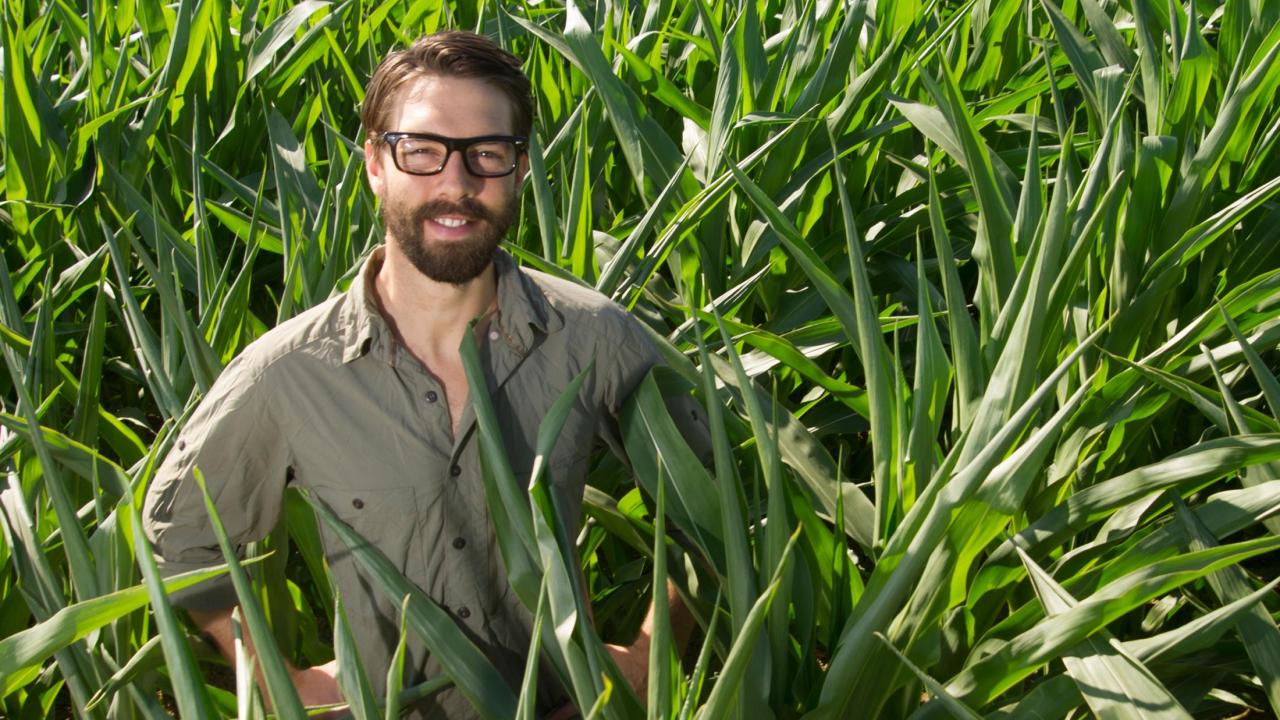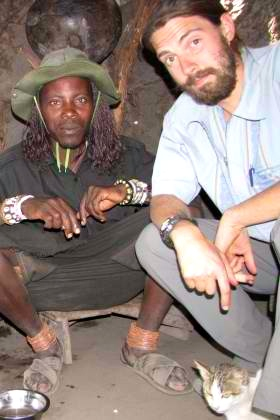
Jonathan Salerno
What matters to Jonathan?
Quick Summary
- Developing conservation policies and interventions that support healthy people and environments.
A lifelong lover of science and nature, Jonathan Salerno found the field of ecology to be a natural fit when it came to pursuing a career. The Ph.D. candidate and Fulbright scholar has broad interests in biodiversity conservation and human behavior, along with an ongoing fascination with the people, landscapes and wildlife of Africa.

That initial connection developed into a mentorship that continues today, with Borgerhoff Mulder serving as Salerno’s adviser in the Graduate Group in Ecology (GGE). His research continues to focus on understanding human behaviors, particularly those of individuals and communities in the tropics, to inform better conservation policies and interventions that support healthy households and environments.
In addition to the GGE’s core curriculum based in foundational ecology and evolution, Salerno has benefited from courses and instruction in conservation management, human behavioral ecology and cultural evolution, environmental policy, landscape ecology and other sub-fields. Topics such as biodiversity conservation and sustainability, which are inherently interdisciplinary, are often vulnerable to a lack of disciplinary or theoretical grounding. But this is precisely the ideal environment for a UC Davis graduate group, particularly one as robust as the GGE. Currently comprising 130 faculty from 24 different campus departments or units, the GGE is the largest and most comprehensive ecology graduate training group of its kind. For nearly a half-century, GGE alumni—1,200 strong and growing—have influenced national and worldwide policies, through universities, federal and state resources agencies, private conservation organizations, and innumerable environmental consulting and biotech companies.
“The GGE’s curriculum, faculty and research scope is well-suited for interdisciplinary work, and welcoming to ideas and cross-collaborations,” Salerno says. “The program is exceptional in its ability to foster a concrete foundation that grad students need to pursue applied work like mine. It's an ideal environment for young scientists, particularly ones drawing on different academic approaches for their training.”
On a more micro level, Salerno’s faculty and colleagues in evolutionary anthropology have supported his intellectual development, particularly in his preparation for an academic career. “I'm excited and optimistic about the prospects of being a researcher and a professor.” Salerno credits a number of UC Davis programs for their support. A graduate seminar on Academic Professional Development was, he says, a bootcamp for taking the necessary steps towards getting a job in academics. The Learner-Centered Teaching workshop, organized by the Center for Excellence in Teaching and Learning, was also a hugely beneficial resource, “especially for those of us who are terrified of teaching!”
Finding the financial support to fund his research was also critical. “Faculty and staff involved in helping students obtain external funding have been incredibly supportive through multiple rounds of applications and all the difficulties that come with working and spending a large amount of time abroad. I'm extremely thankful.”
The next few years of Salerno’s research has great potential to produce exciting outcomes and worldwide influence. A recent Research and Innovation Fellowship — created through partnership between the National Science Foundation and the US Agency for International Development — will allow Salerno to collaborate with a Senegalese governmental program to study why farmers may or may not choose to adopt climate-related on-farm adaptation strategies.
Salerno and his wife, Caitlin Wells, also part of the GGE, will spend six months in Iringa, Tanzania during the final year of their degrees, to collaborate with the Wildlife Conservation Society and start the groundwork needed to establish a long-term field site in order for both to transition from their dissertation research to co-located research programs. “Caitlin will be looking at the feasibility of extending her work on conservation genetics,” he says, “and I’ll be sorting out whether I can ask similar questions of behavior and livelihoods in the new landscape of protected areas and community-based conservation projects.”
